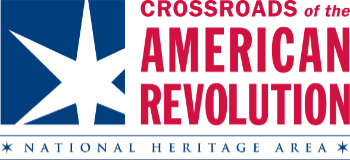Biography People
Nicholas Collin Full Biography
I was born in 1746 in Fundbo, Sweden into the family of a Lutheran clergyman. After graduating from the University of Uppsala in 1768, I was ordained as a minister in the Lutheran Church of Sweden. In 1770, I became assistant rector of the Swedish Lutheran church in Swedesboro, Gloucester County, New Jersey. Beginning in 1773, I served both the Swedesboro church and also the nearby Swedish Lutheran church at Pensneck (today’s Pennsville). The Church of Sweden had supplied ministers as a mission to the descendants of the settlers of New Sweden, the Swedish colony on the Delaware River that existed between 1638 and 1655 and would continue to do so until 1786.
In 1776, after the Declaration of Independence I saw “much anxiety here about the war.” There was fighting between ships on the Delaware River near my Pensneck church and there were constant alarms after the British defeated the rebels around New York City and the British army “spread itself over Jersey.” While I had earlier seen that most people had been eager to fight the British “as the fire came closer, many drew away, and there was much discussion among the people” and some “concealed themselves in the woods, or within their houses,” while others “were forced to carry arms, others offered opposition and refused to go.” Some of my church members became afraid to attend services because rebel officials might try to take their horses or convince them to join the rebels. I was opposed to all forms of violence and bloodshed and did not support the American fight for independence. When I witnessed rebels shooting at a young man who refused to take up arms against the British I stepped in to stop the “dreadful” verbal attacks and their “mad, un-Christian behavior.” I refused to hold further services in the Pensneck church until people behaved civilly, but preached in the private homes of peaceful men until the next spring.
I was taken prisoner by some New Jersey militiamen in February 1777 and believe this was ordered by rebel members of churches who did not get along with those of us who were Swedish Lutherans. I was told I was to be marched to an unnamed location about 100 miles away. I was closely guarded by the militia and expected they would shoot me at some point. However, luckily, we had not gone far when the kind-hearted, German Lutheran Doctor Bodo Otto used his influence to have me released. I was then given the choice of swearing an oath of allegiance to the rebel government or quickly packing any possessions I wanted to keep and removing myself to the British lines. As a Swedish citizen I could not swear loyalty to another government. We talked, and I was allowed to remain neutral and promised to do “nothing which would be unworthy of me as a Swedish subject.” Unlike other American clergymen it was against my “official duties” and “conviction” to urge people to support the Revolution. “I took no part in their factions, but to chastise godless persons and to prevent arson and theft is the duty of a true servant of the Lord, even if it cost [him] his life.”
When I visited Fort Mercer, not far from my Swedesboro church, shortly after it was unsuccessfully attacked by Hessian troops, I made some drawings of the battle site and visited the German wounded soldiers to comfort them in German. I did not visit American soldiers. I was arrested again, accused of spying, and threatened with hanging. The American commander who arrested me was very cruel and I heard that he had executed a number of people. I was able to talk him into releasing me by promising I would become his prisoner again whenever he demanded it. I also quartered some American troops in the fall of 1777 and had a brief encounter with General Anthony Wayne when he passed through Swedesboro in 1778. I found Wayne to be a “well-bred gentleman” who showed me “great respect.” I found British soldiers to be less respectful and observed them robbing both their friends and enemies “in the most despicable manner, and sometimes with the permission of the officers.”
By the time the British left Philadelphia in June 1778 I felt “it looked as though America would be conquered and that people were trading with the enemy against all the laws against it.” I saw many other things and in general can say about the war that “everywhere distrust, fear, hatred and abominable selfishness were met with.”
I served the Swedesboro church until 1786 and then moved to Philadelphia where I continued to serve the Church of Sweden. I was curious about many things and in 1789 I was accepted as a member of the American Philosophical Society, founded by Ben Franklin. I continued to live a full life until my death in 1831.
Note: Words in the story in quotation marks are taken from Nicholas Collin’s journal.
Note: He was born with the name Nils and changed it to Nicholas sometime during his lifetime.
FURTHER RESOURCES
Fea, John, “Nicholas Collin,” in Maxine N. Lurie and Mark Mappen, eds. Encyclopedia of New Jersey, New Brunswick: Rutgers University Press, 2004, 162.
Waldron, Richard, “A True Servant of the Lord”: Nils Collin the Church of Sweden, and the American Revolution in Gloucester County.” (Text of talk presented during the conference “Piety, Politics and Public Houses: Churches, Taverns and Revolution in New Jersey,” New Jersey State Museum, Trenton, New Jersey, March 8, 2003. Available online at: njh.libraries.rutgers.edu/index.php/njh/article/download/1106/2554
Johnson, Amandus, trans., The Journal and biography of Nicholas Collin, 1746-1831. Philadelphia: The New Jersey Society of Pennsylvania, 1936.
